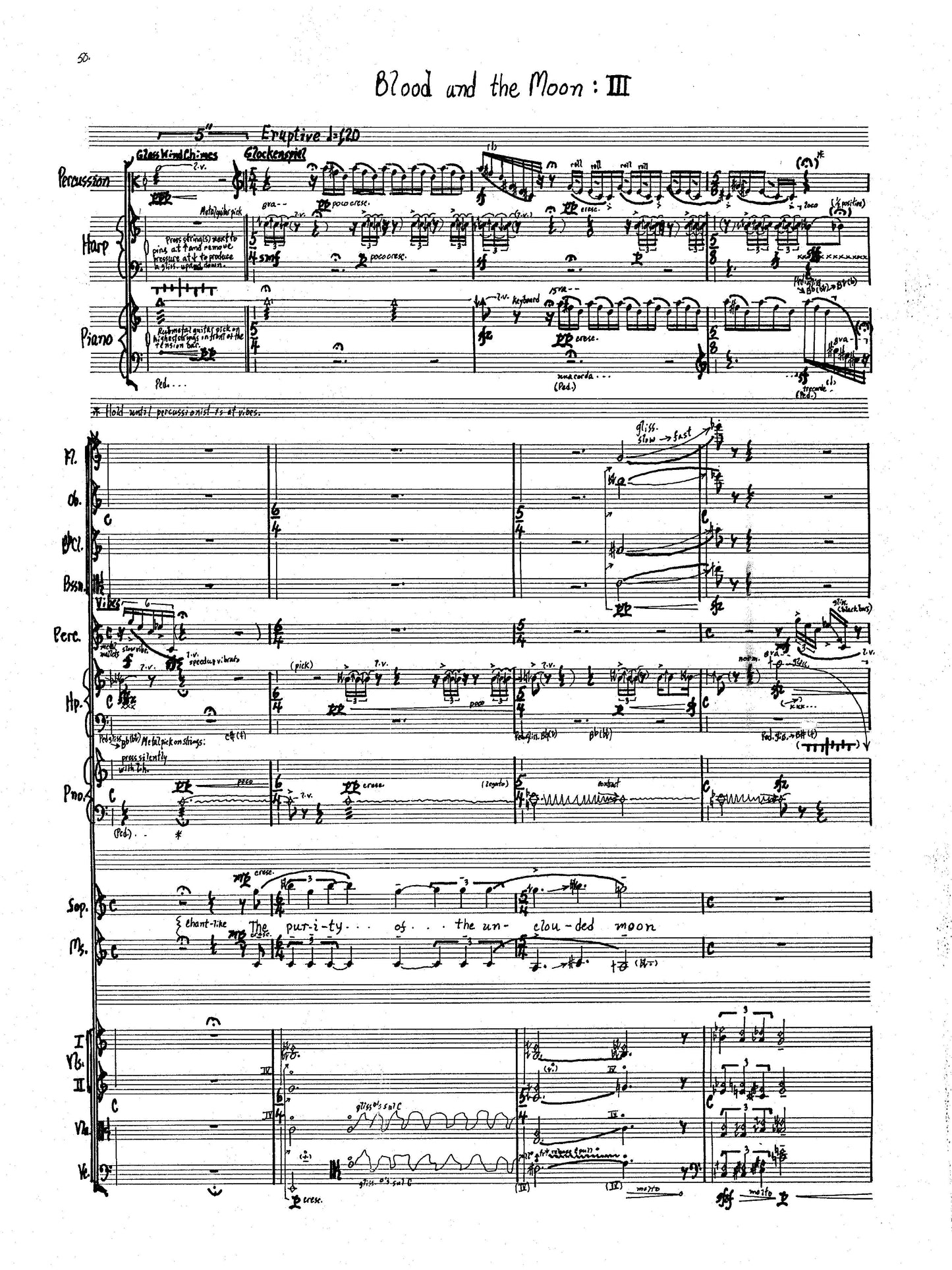John Eaton » Notes on Moonlight
Notes on Moonlight
Notes on Moonlight
Soprano, Mezzo-Soprano, Flute (Doubling Alto Flute), Oboe, Clarinet (Doubling Bass Clarinet), Bassoon, Percussion (1), Piano, Harp, 2 Violins, Viola, and Cello
Composer's Note:
Notes on Moonlight (The title is taken from a poem by Wallace Stevens.) is a song cycle based on five poems by five different poets. Each poem displays a different attitude toward the moon.
In the opening piece, on "Romance de la tuna, tuna" from Romancero Gjtano (1924) by Federico Garcia Lorca, the moon is the mysterious, malevolent mother goddess of the ancient Mediterranean, who rules over love and death. Her dancing bewitches and steals away a young boy in a forge. When the gypsies return, even the air joins in their sad wake. In the earlier part of the song, the soprano represents the boy; and the mezzo-soprano, the moon. The singers join together for narrative passages.
The second poet, Wallace Stevens, finds the moon, although still maintaining its earlier position as the mother goddess, far less sinister, more sympathetic. This lyrical ode from Harmonium (1923) is set for mezzo-soprano, woodwinds, and strings only.
The third piece is a scherzo. Leopoldo Lugones, in this poem taken from Lunario Sentimental (1909), scoffs at the moon and the persons who take "her" seriously. He is thoroughly bored by all the romantic notions about this ludicrous object. His ironic statements are set for soprano, and emphasizes the percussionist, who keeps his distance from the changing tempi of the rest of the ensemble, as a good satirist should, until the very end. Then the percussionist is momentarily caught up in the excitement, before relapsing.
As one might expect of the next poet, Baudelaire in this poem from Les Fleurs du Mal (1861) emphasizes the sensual aspects of the moon. It is juxtaposed with a beautiful woman, who in tittilating herself, lets fall a tear, which a wakeful poet, places in his heart, far from the sun. The two voices sing in tandem, hardly ever over piano, with no percussion and only very soft sounds from the piano and harp.
Arguably, the moon meant more, and on deeper levels, to Yeats than any other poet: he constructed a entire system of the human personality on its phases. The excerpt of a larger poem, "Blood and the Moon" from The Winding Stair (1933), which is set here, however, is a challenge to humanity to stop sullying its pure light with our senseless killing. It uses the entire ensemble, and concludes the cycle.
Movements: I. Romance de la luna, luna, II. Lunar Paraphrase, III. A la luna de verano, IV. Tristesses de la lune, V. Blood and the Moon: III
Authored (or revised): 1991
Published: 1991
Text source: Federico Garcia Lorca, Wallace Stevens, Leopoldo Lugones, Charles Baudelaire, William Butler Yeats.
Book format: Score
SKU
ACA-EATJ-025Subtotal
$62.50Couldn't load pickup availability
















